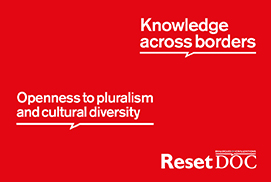1 May 2010
This short paper will seek to explore the causes, and possible solutions of what seems to be the current freezing of the Turkish constitution making process, that has had some dramatic successes in the 1990s and early 2000s. After my previous work, comparing the major forms of modern constitution making that claim to be democratic, I have come to the conclusion that it is the legitimacy problem (rather than choice of specific model) that represents the level on which the normative justification of each process, and at least the short term chances of its success in a divided society should be tested. As a result, I make the strong claim that democratic legitimacy or constituent authority should not be reduced either to any mode of power, even popular power, or to mere legality. It is these types of reduction that I find especially troubling in recent Turkish constitutional struggles, where the legal claims of two powers, of the government controlled legislative and of the judicial branches to structure the constitution are not backed by sufficient political legitimacy. In effect these two powers that claim their constituent authorization, rather implausibly in my view, from either the democratic electorate or from an original constituent power, because of their conflict threaten to freeze the constitution making process that very much needs to be continued and concluded. I end the paper by making a suggestion for one possible constitution making procedure that would be both legitimate and legal.


